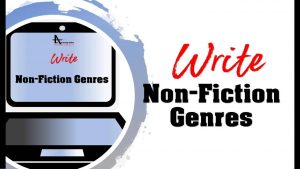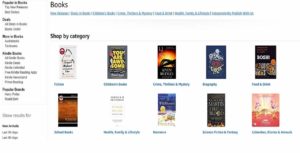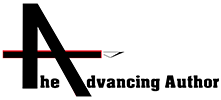
Pick And Write Non-Fiction Genres
Contents
Pick your non-fiction genre, learn its characteristics and you’ve got a recipe for success.
Many writers are aware of the existence of fiction genres. But how many are aware that non-fiction genres even exist?
What then are non-fiction genres? And how can learning about genres help?
In this article, we will explore what genres are and then examine what genres exist in non-fiction.
Why wait? Let’s dive right in.
Non-fiction is overlooked!
For a number of years, I concentrated on writing fiction. My time in bookstores was spent in the fiction section. Despite having read many non-fiction books, for some reason, writing non-fiction never crossed my mind.
One afternoon, doing my usual browse in a bookstore, I came upon a non-fiction book. And that book changed my entire outlook to writing.
What happened? I discovered that non-fiction abounded with possibilities. I discovered it was time to explore and begin to write non-fiction.
What is a genre?
This can be baffling when someone asks: “What genre are you writing?” Or worse yet when we have to place our book into a category on Amazon.
Genre, for me, is simply a category with some recognisable characteristics.
Merriam-Webster describes genre as “a category of artistic, musical, or literary composition characterized by a particular style, form, or content.”
Dictionary.com also calls it: “a class or category of artistic endeavour having a particular form, content, technique…”
And Collins refers to it as a “particular type of literature, painting, music, film, or other art form which people consider as a class because it has special characteristics.”
So genre relates to literature, art, music, film or any form of communication that have a set of recognisable characteristics.
What does History say about genres?
Historically, genres were used as a classification method for ancient Greek literature. Aristotle used it to talk about poetry, prose and performance. As the years went by, the people began using it to categorize as well as make sense of, what would otherwise be, a mass of developing art forms.
Genres change
Genres are not static. They evolve with time. Genres evolve as art forms adapt and change with the way people write and sing songs; with the way people dance; with the way people write poetry and prose and with the way people perceive the world and paint it.
Genre in literature
In literature, genre can be determined by literary techniques used by the Author, the content, the tone, and the length of the piece of writing.
What genres evolved over the years?
Over the years, three basic forms evolved. There is drama, poetry and prose which consists of the novel, the novella and short stories.
A further classification
Genres can be further classified into: fiction and non-fiction.
Alongside the traditional forms of writing, some new forms have emerged such as: blogs, e-Books and copywriting for websites.
Amazon Categorisation
 Amazon has an excellent categorisation system for their non-fiction books and they have listed the following to pick from:
Amazon has an excellent categorisation system for their non-fiction books and they have listed the following to pick from:
- Arts and Photography
- Biography and True Accounts
- Business and Finance
- Children’s non-fiction
- Computing
- Education and Reference
- Food and Drink
- Health and Fitness
- History
- Home and Garden
- Literary Criticism and Theory
- Parenting and Families
- Politics and Social Sciences
- Professional and Technical
- Religion and Spirituality
- Science and Maths
- Self-Help and Counselling
- Sport
- Travel
What can we learn from this?
All these categories have specific characteristics which readers have come to expect over the years.
Pick your genre, learn its characteristics and you have a recipe for success.
What next?
Download PDF Version of this article HERE to read later.
Read: 3 Quick Ways To Choose The Right Genre.
Transform Your Manuscripts Into Published Products For Fun Or Profit!

